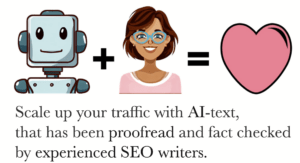As we dive deeper into the digital age, artificial intelligence (AI) continues to reshape how we analyze content and extract valuable insights from vast amounts of data. The integration of AI into content analysis isn’t just streamlining processes; it’s revolutionizing the way businesses understand consumer behavior, optimize marketing strategies, and make data-driven decisions.
From sophisticated algorithms that can interpret nuances in human language to machine learning models that predict trends before they hit the mainstream, AI’s role is pivotal and growing.
In this article, we’ll explore how AI’s capabilities are evolving and what that means for the future of content analysis and data insights, highlighting both the opportunities and challenges that lie ahead.
Evolution of Content Analysis
Over the years, content analysis has transformed significantly, evolving from simple manual coding to sophisticated AI-driven techniques. You’ve witnessed this shift as it moved from labour-intensive tasks, requiring you to manually sift through data, to utilizing algorithms that streamline the process. These changes have allowed you to quickly interpret vast amounts of information, enhancing your ability to extract valuable insights.
This evolution isn’t just about speed; it’s also about accuracy. You’re now able to detect nuances and patterns that were previously overlooked. This shift has significantly improved how you understand content, from social media posts to complex academic articles, making your analyses more robust and your conclusions more reliable.
It’s a dynamic field that continues to grow and refine.
Advancements in AI Technology
AI advancements have revolutionized how you analyze and interpret content across various platforms. You’re now seeing more sophisticated algorithms that can sift through massive data sets in real time, identifying trends and patterns that were once beyond human capability. These tools don’t just process information faster; they’re also learning from data, improving their accuracy over time.
These improvements mean you can now access AI-driven analytics tools that offer insights previously locked away in complex data structures. They’re capable of understanding the nuances of human language and making sense of unstructured data from social media, blogs, and news articles.
As you integrate these technologies, you’ll find they’re not only enhancing productivity but also opening up new avenues for strategic decision-making in content management.
Enhanced Data Interpretation
AI tools now enable you to interpret complex data more intuitively and accurately than ever before. These technologies harness sophisticated algorithms to sift through vast datasets, identifying patterns and correlations that might escape the human eye. You’re no longer bogged down by the sheer volume of information, as AI efficiently distills it into understandable insights.
This capability allows you to make quicker decisions based on robust data analysis. You’ll find it easier to spot trends and anomalies, which in turn helps in fine-tuning strategies and operations.
Moreover, these insights aren’t just faster; they’re also more precise, reducing the likelihood of error that can come from manual data interpretation. It’s about smarter, not just faster, decision-making.
Predictive Analytics Applications
Predictive analytics tools empower you to foresee market trends and consumer behaviour with remarkable accuracy. These tools analyze historical data and apply machine learning algorithms to predict future outcomes. You’ll find that these predictions can significantly improve decision-making processes in industries like finance, healthcare, and retail.
For example, in finance, you can use predictive analytics to assess credit risk or forecast stock trends. In healthcare, these tools help predict patient outcomes, aiding in personalized treatment plans. Retailers benefit by forecasting sales trends and managing inventory more efficiently.
By integrating predictive analytics, you’re not just reacting to changes; you’re anticipating them, staying a step ahead in your strategic planning.
Automation in Insight Generation
Automation in insight generation allows you to rapidly translate vast data sets into actionable intelligence. This capability is revolutionizing how you approach decision-making processes in your business. You’re no longer bogged down by the manual sifting of data; instead, AI tools streamline the extraction of relevant insights, ensuring you’re not just faster but also more accurate in your strategic choices.
These automated systems detect patterns and anomalies with precision, providing you with a clear, data-driven path forward. They adapt to new information, continuously refining their analyses.
This isn’t just about saving time—it’s about enhancing the quality of your decisions, ensuring you stay ahead in a competitive landscape, all while reducing human error and bias in your insights.
Personalization and User Experience
AI significantly enhances user experience by tailoring content and interfaces to individual preferences and behaviours. Imagine logging into your favourite shopping app and finding everything arranged just as you like it—products you adore front and centre. That’s AI at work. It learns from your past interactions to predict what you might need next, making your browsing seamless and enjoyable.
You’ll find that websites seem to read your mind, suggesting content that resonates with your tastes and interests. This isn’t random; it’s a sophisticated algorithm analyzing your digital footprint to enhance your online experience.
You get a custom digital world, ensuring that every interaction is more relevant and engaging. This personalization isn’t just convenient; it transforms how you interact with digital platforms.
Ethical Considerations in AI
While AI enhances personalization, it raises significant ethical concerns about privacy and data protection. You’re right to worry about how your data is handled. Algorithms that learn from vast amounts of personal information can inadvertently breach confidentiality or be misused for surveillance. You must question who controls this data and how transparent they are about its usage.
Furthermore, biases embedded in AI systems can perpetuate discrimination. If you’re from a minority group, AI might treat you unfairly without proper safeguards. It’s crucial you demand accountability from developers to ensure AI systems don’t reflect or amplify societal biases.
You should advocate for ethical AI that respects individual rights and promotes fairness across all communities.
Future Trends in Data Analysis
You’ll notice that the evolution of data analysis is increasingly driven by advanced AI technologies. As you step into the future, you’ll see AI not just automating tasks but predicting trends and behaviours with astonishing accuracy. You’ll find machine learning models diving deeper into predictive analytics, learning from vast amounts of data to offer insights that were previously unimaginable.
Expect AI to integrate more seamlessly with IoT devices, gathering and processing data in real time. This will allow for smarter decision-making in industries ranging from healthcare to urban planning.
Moreover, the rise of natural language processing means you’ll interact more intuitively with data, asking complex questions and receiving answers instantly. The future of data analysis isn’t just about processing numbers—it’s about understanding and predicting the world around you.
How does AI content analysis affect intellectual property rights and copyright compliance?
When AI analyzes content, it helps ensure intellectual property rights and copyright compliance by quickly identifying infringement.
It streamlines processes, aiding in protecting your creative work and safeguarding against unauthorized use.
What are the ethical concerns associated with using AI for content analysis in sensitive industries like healthcare or education?
When using AI for content analysis in healthcare or education, ethical concerns arise regarding privacy, data security, and bias.
Ensure transparency, accountability, and regular audits to address these issues and maintain trust.
How can small businesses leverage AI-driven content analysis on a limited budget?
To make the most of AI-driven content analysis on a tight budget, focus on free or low-cost tools, like Google Analytics or social media insights.
Leverage online tutorials and communities for guidance and support.
Conclusion
In conclusion, AI’s advancements in content analysis and data insights are reshaping industries and decision-making processes.
Embracing AI technologies can lead to more efficient and accurate data analysis, enabling businesses to stay ahead in a rapidly evolving market.
With AI’s potential to unlock valuable insights from vast amounts of data, the future looks promising for those who harness its power effectively.
Stay informed and stay ahead with AI-driven content analysis.





